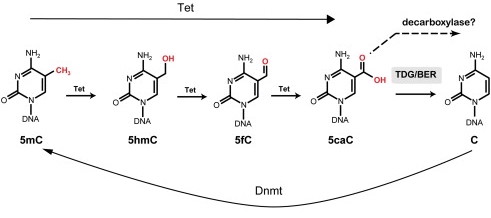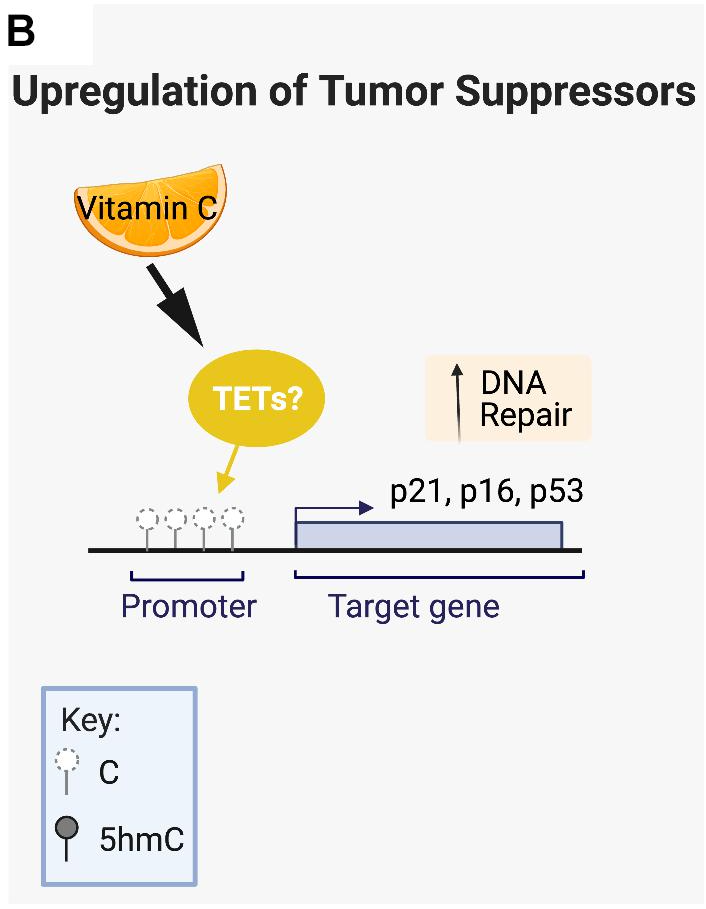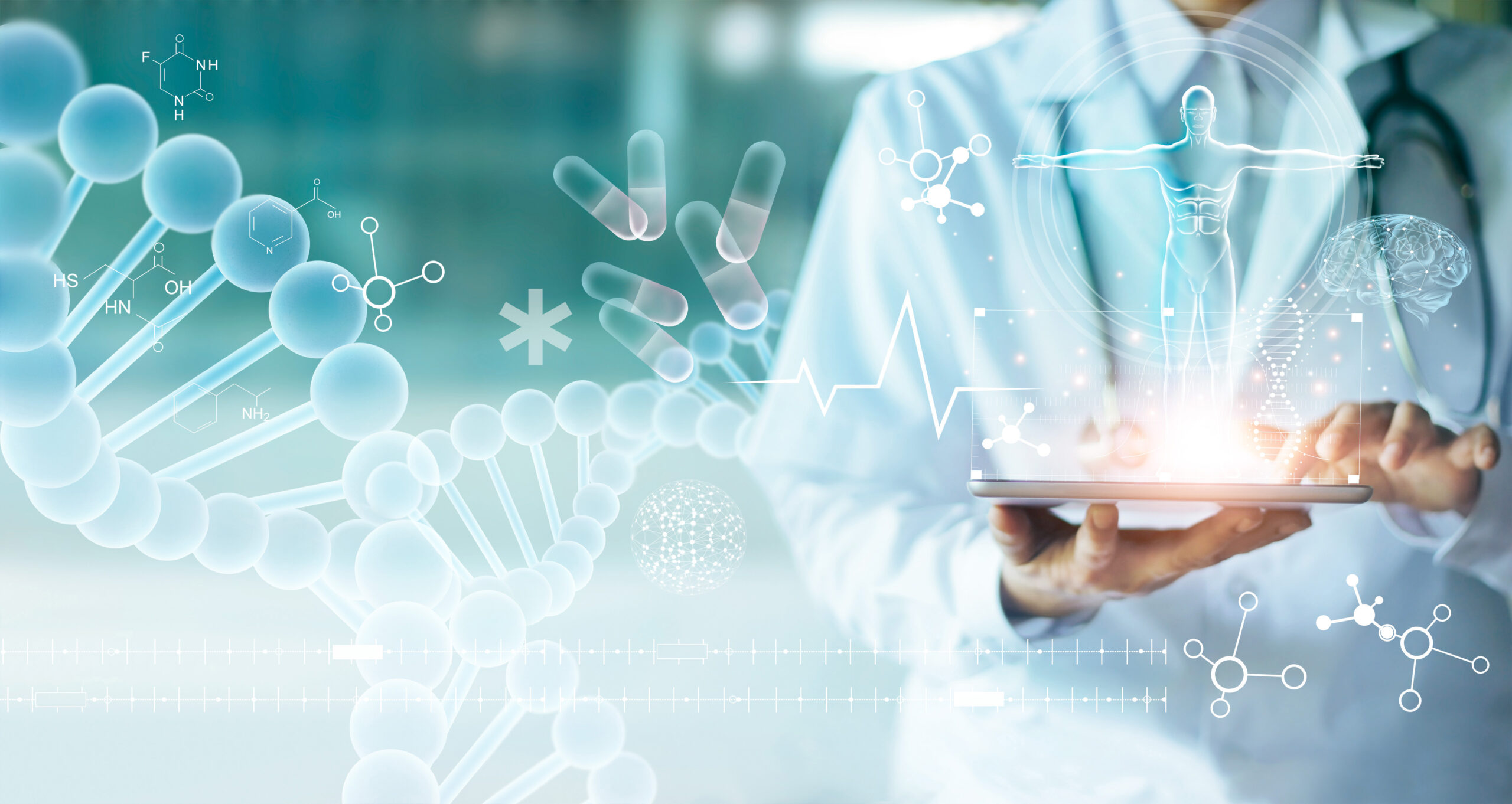Nutrigenomics: God’s Plan for Health
Skeptics challenge the existence of God by pointing to the maladies that ravage human health. How could God allow devastating diseases in a good creation? They assert that either there is no God or that God is not good. And there is no disease that frightens Americans more than a diagnosis of cancer.
But what if God designed humans with mechanisms that would mitigate diseases like cancer? What if God’s design for mitigation includes us?
Recent research demonstrates that our food choices may affect gene expression and influence future health or disease in our bodies, providing a response to challenging questions about God’s goodness.
How Nutrigenomics May Help
For many decades, scientists have known that outside forces can act on the human genome to turn on and off specific genes. This gene regulation by outside forces, known as epigenetics, has been studied in growth and development and disease management, specifically for preventing and treating certain cancers. More recently, specific nutrients and other bioactive compounds in our diet have been shown to affect gene expression. Nutrigenomics, the relationship between human nutrition and gene expression, is a growing field of nutrition science that has made it possible to give more personal nutrition recommendations for specific disease states.
A team of researchers led by John P. Brabson recently reported on a specific incidence of nutrigenomic interaction where vitamin C is involved in regulating the stability of the human genome. It has long been known that vitamin C is a powerful antioxidant and can reduce oxidative stress. Its function as an antioxidant has been shown to reduce the initiation and progression of certain cancers by reducing oxidative damage to DNA.
The authors of this paper propose that in addition to vitamin C’s antioxidant actions it also plays a role in altering gene expression by mediating DNA methylation. DNA methylation acts to repress gene transcription and is essential for normal development in mammals. In genes, there are promoter regions of DNA that come before the DNA repair and tumor suppressor genes that determine if the genes will be transcribed. These regions contain cytosine/guanine islands where cytosine-phosphate-guanine bases are highly represented. Methylation of the cytosine bases in these regions will silence the gene expression. Gene suppression and activation are primarily controlled by methylation of the cytosine nucleotide in DNA. DNA suppression and activation is a fine-tuned balance between methylation of cytosine in DNA by methyltransferases (DNMTs) and demethylation by Ten-eleven translocation proteins (TETs).
The authors demonstrate that vitamin C is an essential cofactor for TET to demethylate cytosine. TET regulates DNA methylation levels by oxidizing 5-methylcytosine (5mC) to generate 5-hydroxymethylcytosine (5hmC), 5-formylcytosine (5fC), and 5-carboxylcytosine (5caC). 5hmC, 5fC, and 5caC can in turn be converted back to unmethylated cytosine (figure 1).

Figure 1: TET Regulation of DNA Methylation. Credit: Creative Commons Attribution
Without the proper functioning of TET, DNA becomes hypermethylated. Hypermethylation leads to an abnormal silencing of genes. In cancer, DNA methylation is disrupted, resulting in hyper or hypomethylation. Cancer promotion and progression could go unchecked if this silencing happens in a region that codes for DNA repair or tumor suppressor genes. As a cofactor of TET, vitamin C increases the conversion of 5mC to 5hmC, which promotes DNA demethylation and activation of the tumor suppressor and DNA repair genes (figure 2).

Figure 2: Upregulation of Tumor Suppressors. Image credit: John P. Brabson et al., “Epigenetic Regulation of Genomic Stability by Vitamin C,” Frontiers in Genetics (May 4, 2021), https://doi.org/10.3389/fgene.2021.675780.
In its role as a TET activator, vitamin C may also be beneficial as an adjunct cancer therapy. The authors state that “methylated cytosines are approximately fivefold more likely to undergo mutagenesis than unmethylated cytosine.” Methyl cytosine can easily be deaminated to form thymine because of the two nucleobases’ structural similarity (see here).
This mutation causes a mismatch by pairing thymine with guanine in place of normal cytosine/guanine base pairing. These mutation rates are 50% lower for cytosine compared to 5-methylcytosine. Researchers have learned that high vs low treatments with vitamin C in human leukemia cell lines caused a two to fourfold increase in genome-wide DNA hypomethylation. An in vitro study of human colorectal cancer cell lines reported a threefold increase in 5-hmC level and a ten to twenty-fivefold increase in 5-fC in response to vitamin C treatment.2
Another study found that the introduction of sodium L-ascorbate to renal carcinoma cell lines restored 5hmC patterns in cells. Vitamin C showed anti-tumor effects at physiological concentrations in vitro and in vivo.3 Having sufficient vitamin C to assist TET in the process of demethylation and activation of DNA repair genes may be an important adjunctive therapy for cancer.
God’s Care and Human Responsibility
This fine-tuning of the DNA regulation demonstrates God’s character in the way he provides, protects, and cares for us. In Romans 1:20 (NASB), Paul states that “since the creation of the world His invisible attributes, His eternal power and divine nature, have been clearly seen, being understood through what has been made, so that they are without excuse.” God’s eternal power can be clearly seen as we look up and see the finetuning of the universe. His divine nature can be seen by looking at the fine-tuning in biochemistry that demonstrates his care, protection, and provision for us in our basic DNA.
So often it seems like cancer is haphazard in how and when it strikes. We feel like we have no control and are at the mercy of free radical carcinogens and radiation. But God has designed our bodies to correct DNA damage when it occurs and to prevent the onset of cancer. We can participate with God by giving our bodies the nutrients it needs to function properly. Following are foods that contain the vitamin C that God provided for proper DNA repair.
| Genesis 1:29 Foods | |
| Food item | Mg of vitamin C per cup |
| Tomato juice, canned | 170.3 |
| Kiwifruit, green, raw | 166.9 |
| Vegetable juice cocktail, canned | 137.4 |
| Litchis, raw | 135.8 |
| Oranges, raw, with peel | 120.7 |
| Papayas, raw | 88.3 |
| Broccoli, frozen, chopped, unprepared | 88 |
| Nuts, chestnuts, raw, unpeeled | 62.4 |
| Mangos, raw | 60.1 |
| Peas, green, raw | 58 |
| Cauliflower, green, raw | 56.4 |
| Potatoes, mashed, dehydrated, flakes without milk, dry form | 48.6 |
| Currants, red and white, raw | 45.9 |
| Carambola, (starfruit), raw | 45.4 |
Data from United States Department of Agriculture, USDA National Nutrient Database for Standard Reference Legacy (2018), Nutrients: Vitamin C, Total Ascorbic Acid (mg), https://www.nal.usda.gov/sites/www.nal.usda.gov/files/vitamin_c.pdf.
Humans are not at the mercy of and do not need to be worried about DNA damage. We have been fearfully and wonderfully made (Psalm 139:14)—down to the DNA level—and we have some control by choosing to eat as God prescribed in Genesis 1:29. We are to eat every plant-bearing seed and every tree with fruit with seed in it. God is good and has provided ways we can work with him to keep our bodies whole and well.
Endnotes
- John P. Brabson et al., “Epigenetic Regulation of Genomic Stability by Vitamin C,” Frontiers in Genetics (May 4, 2021), https://doi.org/10.3389/fgene.2021.675780.
- Martyna Modrzejewska et al., “Vitamin C Enhances Substantially Formation of 5-hydroxymethyluracil in Cellular DNA,” Free Radical Biology and Medicine 101 (December 2016), 378–383, doi:10.1016/j.freeradbiomed.2016.10.535.
- Guangzhe Ge et al., “Restoration of 5-hydroxymethylcytosine by Ascorbate Blocks Kidney Tumour Growth,” EMBO Reports, 19, no. 8 (August 1, 2018), 19: e45401, doi:10.15252/embr.201745401.






